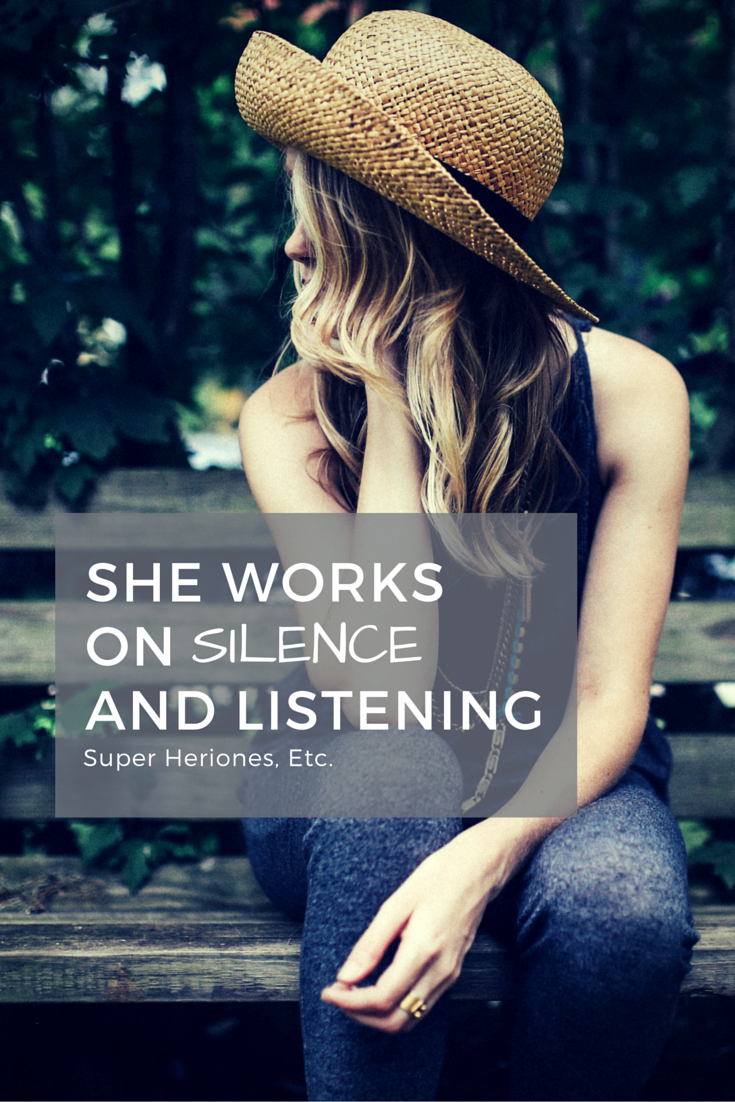Three very interesting things happened this week, all at once. First, I had a doctor’s appointment for my voice (I lose it often). Second, I saw this cave man’s video about a science initiative to encourage women in science:
TL:DW: Marie Curie is good, MLK is good, but funding for women’s involvement in science is discriminatory.
And finally, I finished listening to Hamilton’s cast album (Thanks Melody, sweet rolling munchkins this is good!):
What do these things have in common? Nothing…well, except to me. They started me thinking about silence…stay with me here, this mostly ties together in the end.
Silencing is a common term in activist circles. We talk about people being silenced when their point of view is unheard, or is constantly interrupted (parodied brilliantly here). So being told to limit myself to “essential talking” and avoid “voluntary” speech was almost panic-inducing. My voice is my living. I work primarily through my voice. I don’t want to be silenced. I want to be able to rant about this dorky, sexist anti-science guy, I want to chat with students, and I want to sing in the car with my five-year old. But if I don’t want surgery, I have to be silent, and somehow like the experience (or I won’t do it… I’m stubborn). The only way to make this work is to pick my words judiciously, and shift my focus to listening. Clearing space so that others are heard gives me the biggest bang for my word budget. If I can keep my colleagues from being talked over, I’m doing far more than squeaking out a few ideas. I need to, in the words of Hamilton’s Aaron Burr, “talk less, smile more.” I also have to drastically reduce the number of times I sing along to “My Shot.” That last one is probably better for everyone now that I think about it.
Shifting focus to listening when you are a talker is difficult. I, like a lot of professional women, am often accused of talking too much, and I am sometimes guilty of focusing on what I will say next while someone is speaking. New research somewhat exonerates that particular habit, but still it’s not the best way to solidify relationships.
Our voices are vital, but so is our immense capacity to deeply listen to each other. Sometimes young professionals feel they have to always be talking if they hope to gain ground. Even the practice of commiseration is rarely productive, and it can lead to oversharing that can devolve into this:
We can build better habits.
We need to speak AND listen well in order to banish the stereotypes that follow us into the workplace, and in doing so abolish the idea that professional women come in two flavors: too meek to speak, or too pushy to listen. This comes from good habits, advocating for each other, and ensuring that all voices get their shot.
In Hamilton, Eliza, the wife of Alexander Hamilton, delivers the epilogue. History rarely mentions her contributions, but they were vast. While Hamilton ended up on currency, Eliza is often a footnote. After Hamilton’s death, she opened orphanages, advocated for the abolition of slavery, and frequently visited the White House. Who is our generation’s Eliza? Who else is out there, doing amazing things with no notice, who can we collectively clear the stage for?
Personally, I have a communication role model for my foray into silence. She’s a goddess arch-librarian at our institution. She’s composed, wise, and amazing. She spends the vast majority of committee meetings listening deeply and taking notes. When she speaks, everyone turns and listens. She’ll then say something brilliantly important, and make sure that those trying to speak are given the floor. She has a quiet power I only hope I have the patience to cultivate.
With her inspiration, I’m going to take silence as an opportunity to encourage others. So, here’s the mic, tell me about the communicators you admire… I’ll leave you with mine, my daughter Sofia, with her rebuttal to the opinion that women should avoid science:
You go Kiddo!
- In Praise of Playful Adulthood - August 19, 2018
- Passport to Wakanda: Being a White Fan in a Black Space - February 15, 2018
- Yes, I’m Mad at You - January 17, 2018


Recent Comments